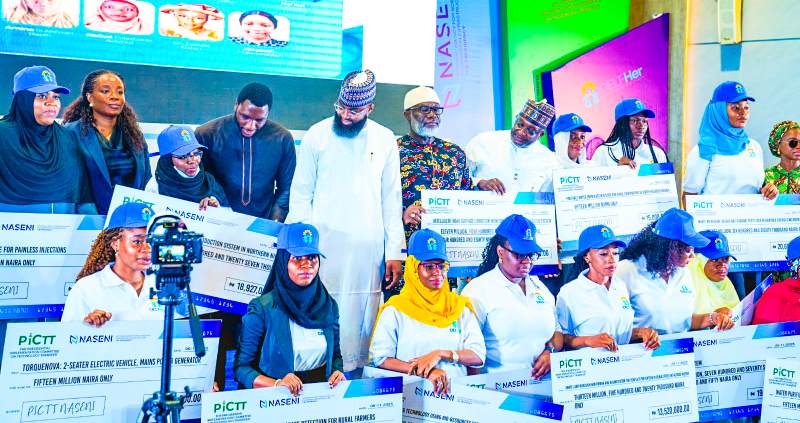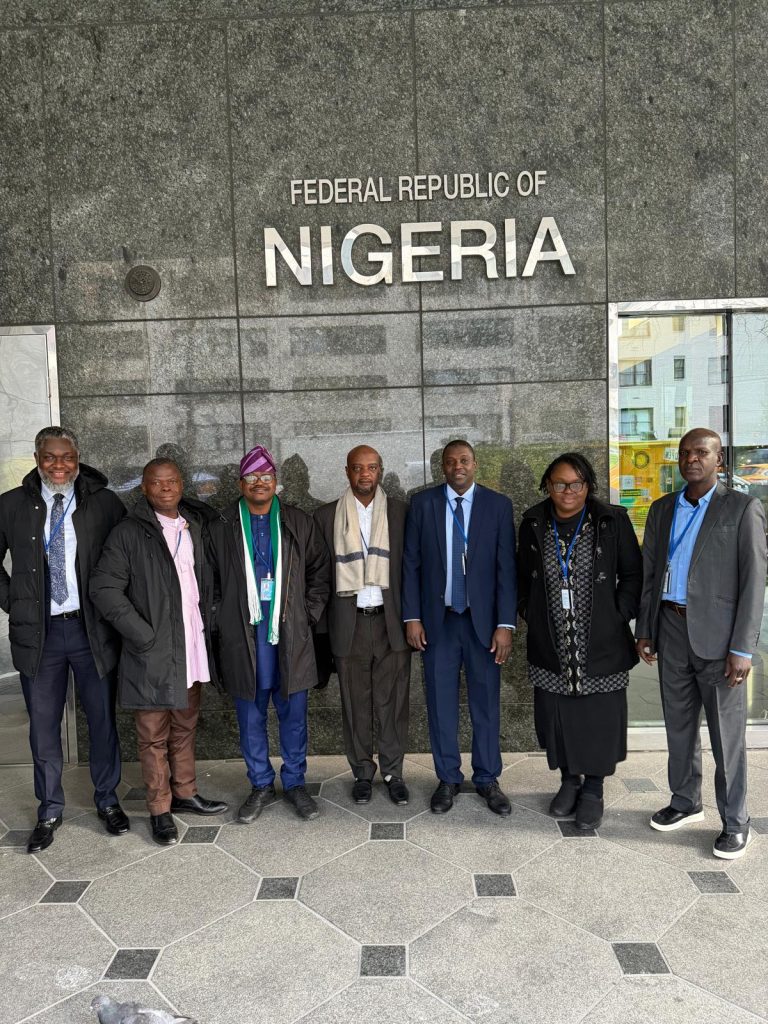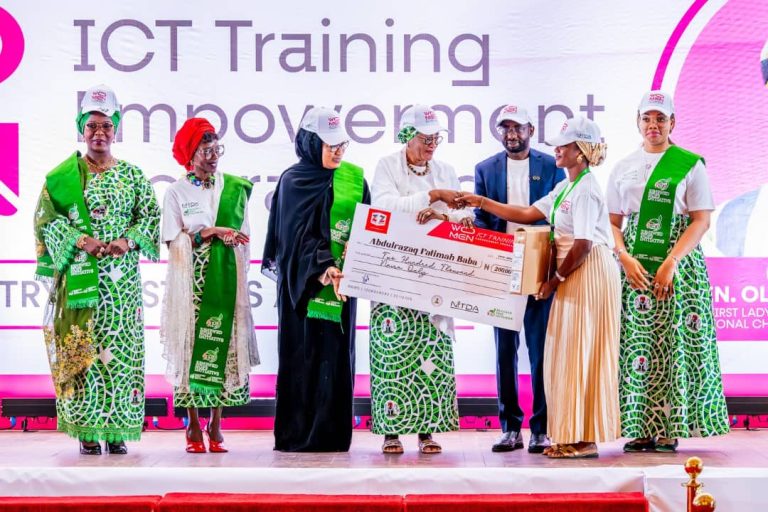
The National Agency for Science and Engineering Infrastructure (NASENI), in collaboration with the Presidential Implementation Committee on Technology Transfer (PICTT), has awarded grants totaling ₦229 million to 14 outstanding female engineers under the Developing Engineering Leaders Through Her (DELT-Her) 2.0 initiative.
According to the Deputy Director, Information, NASENI, Chima Cletus Akwaja, the award ceremony, held on Thursday, November 6, 2025, at NASENI’s headquarters in Abuja, marked another milestone in the agency’s commitment to advancing gender inclusion and innovation in Nigeria’s science and technology ecosystem.
Empowering Women to Engineer Solutions
In his keynote address, NASENI’s Executive Vice Chairman/Chief Executive, Mr. Khalil Suleiman Halilu, said the DELT-Her programme serves as a launchpad for women engineers to translate bold ideas into impactful technological solutions.
“DELT-Her represents an opportunity platform through which women can turn bold engineering ideas into solutions that change the world,” Halilu stated.
He revealed that from a total of 9,925 project proposals submitted nationwide, 14 women innovators were selected to receive the ₦229 million grant to scale their projects in critical sectors such as agriculture, clean energy, healthcare, mobility, digital security, and environmental sustainability.

Scaling Innovation and Inclusion
Highlighting the growth of the programme, the NASENI chief explained that the first edition of DELT-Her in 2024 empowered six female engineers with ₦70.5 million, while the second edition recorded a dramatic surge in participation — from 120 applications in its debut year to nearly 10,000 in 2025.
He added that the programme’s mentorship outreach also expanded from 30 schoolgirls in the FCT in 2024 to over 150 girls across Kwara, Niger, Plateau, Nasarawa, and the FCT this year. These young learners received mentorship, bootcamp training, and fabrication kits to inspire them to develop prototypes of their own.
According to Halilu, “Gender inclusion is not charity — it is strategy. Every woman empowered through DELT-Her represents new capacity for our nation’s technology and manufacturing ecosystem, bringing unique perspectives that drive better designs, smarter products, and more human-centred innovation.”
Partnership for National Development
Chairman of PICTT, Dr. Mohammed Dahiru, commended the awardees for their ingenuity and perseverance, describing them as “trailblazers redefining women’s participation in STEM.”
“As we honour these milestones, let us recommit to sustaining this momentum, ensuring that DELT-Her continues to bridge gaps and drive national development,” Dahiru said.
Representing the President of the Senate, Senator Godswill Akpabio, the Chairman, Senate Committee on NASENI, Senator Ezenwa Francis Onyewuchi, reaffirmed the legislature’s support for NASENI’s mission of indigenous production, local content development, and gender inclusion in science and technology.
“We believe that a nation that builds its technology builds its destiny — and a nation that empowers its women secures its future,” he declared.
Aligning with National Priorities
Also speaking at the event, the Minister of State for Finance, Dr. Doris Udoka, praised NASENI and PICTT for their foresight, noting that the DELT-Her initiative aligns with the Federal Government’s broader commitment to technological independence, industrial growth, gender inclusion, and national competitiveness.
Goodwill messages were delivered by several dignitaries, including Engr. (Ms) Tola Odeyemi, Postmaster-General/CEO of NIPOST; Hon. Stella Okotete, Executive Director, Business Development, NEXIM Bank; Fawaz Amodu, Special Assistant on ICT to the President; and representatives of the Nigerian Society of Engineers (NSE), PenCom, NIMC, and the Office of the Secretary to the Government of the Federation.
The DELT-Her initiative continues to demonstrate NASENI’s commitment to building a pipeline of female engineering leaders, driving innovation and sustainable development across Nigeria’s key economic sectors.




